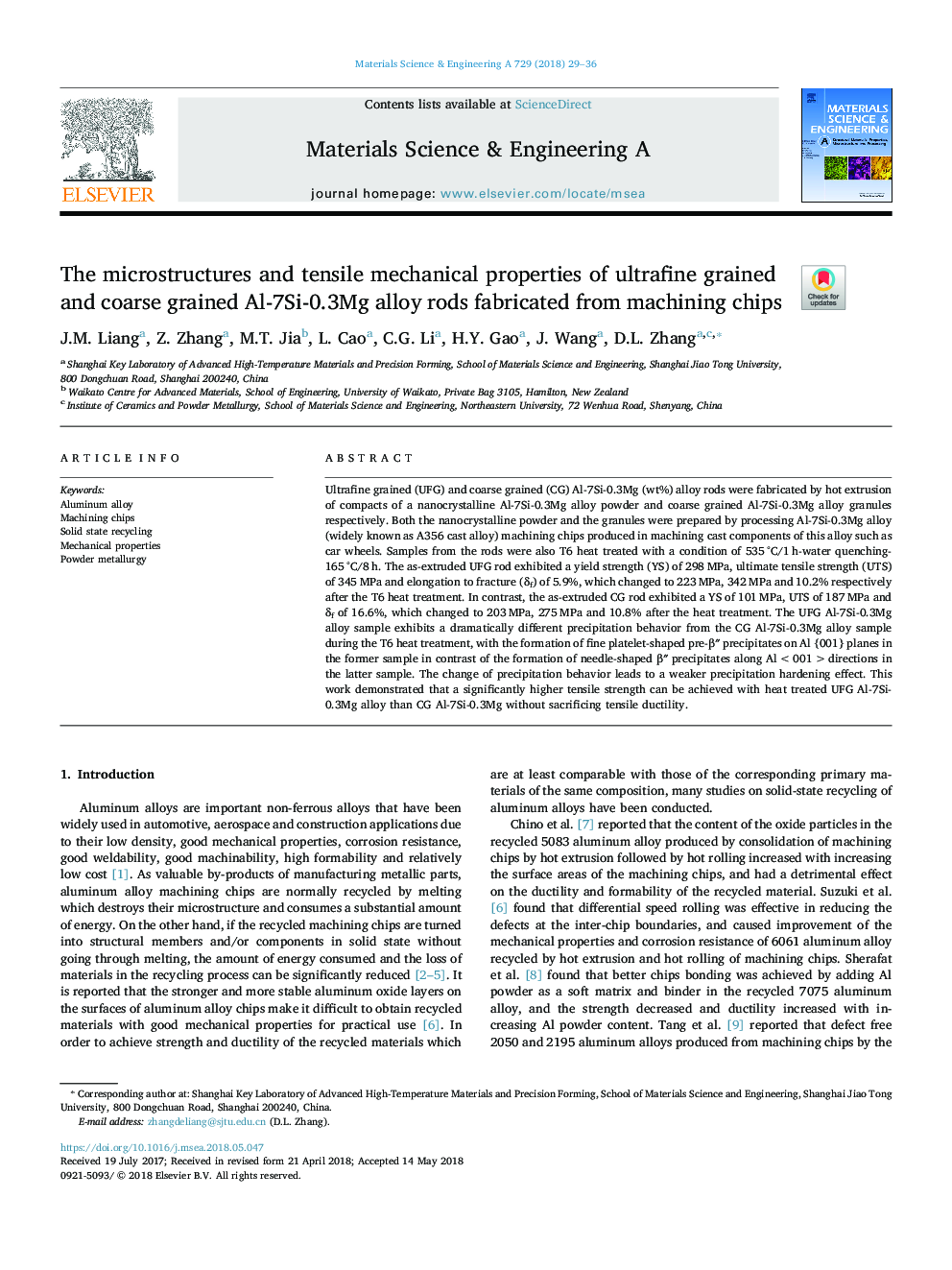| Article ID | Journal | Published Year | Pages | File Type |
|---|---|---|---|---|
| 7971855 | Materials Science and Engineering: A | 2018 | 8 Pages |
Abstract
Ultrafine grained (UFG) and coarse grained (CG) Al-7Si-0.3Mg (wt%) alloy rods were fabricated by hot extrusion of compacts of a nanocrystalline Al-7Si-0.3Mg alloy powder and coarse grained Al-7Si-0.3Mg alloy granules respectively. Both the nanocrystalline powder and the granules were prepared by processing Al-7Si-0.3Mg alloy (widely known as A356 cast alloy) machining chips produced in machining cast components of this alloy such as car wheels. Samples from the rods were also T6 heat treated with a condition of 535â¯Â°C/1â¯h-water quenching-165â¯Â°C/8â¯h. The as-extruded UFG rod exhibited a yield strength (YS) of 298â¯MPa, ultimate tensile strength (UTS) of 345â¯MPa and elongation to fracture (δf) of 5.9%, which changed to 223â¯MPa, 342â¯MPa and 10.2% respectively after the T6 heat treatment. In contrast, the as-extruded CG rod exhibited a YS of 101â¯MPa, UTS of 187â¯MPa and δf of 16.6%, which changed to 203â¯MPa, 275â¯MPa and 10.8% after the heat treatment. The UFG Al-7Si-0.3Mg alloy sample exhibits a dramatically different precipitation behavior from the CG Al-7Si-0.3Mg alloy sample during the T6 heat treatment, with the formation of fine platelet-shaped pre-βⳠprecipitates on Al {001} planes in the former sample in contrast of the formation of needle-shaped βⳠprecipitates along Al <001> directions in the latter sample. The change of precipitation behavior leads to a weaker precipitation hardening effect. This work demonstrated that a significantly higher tensile strength can be achieved with heat treated UFG Al-7Si-0.3Mg alloy than CG Al-7Si-0.3Mg without sacrificing tensile ductility.
Related Topics
Physical Sciences and Engineering
Materials Science
Materials Science (General)
Authors
J.M. Liang, Z. Zhang, M.T. Jia, L. Cao, C.G. Li, H.Y. Gao, J. Wang, D.L. Zhang,
